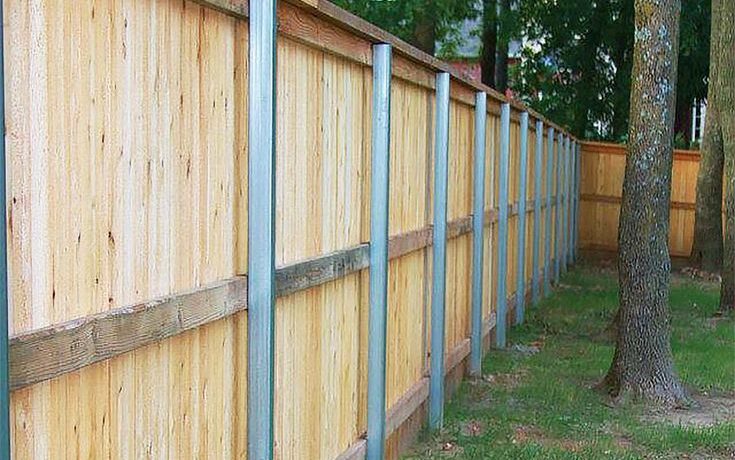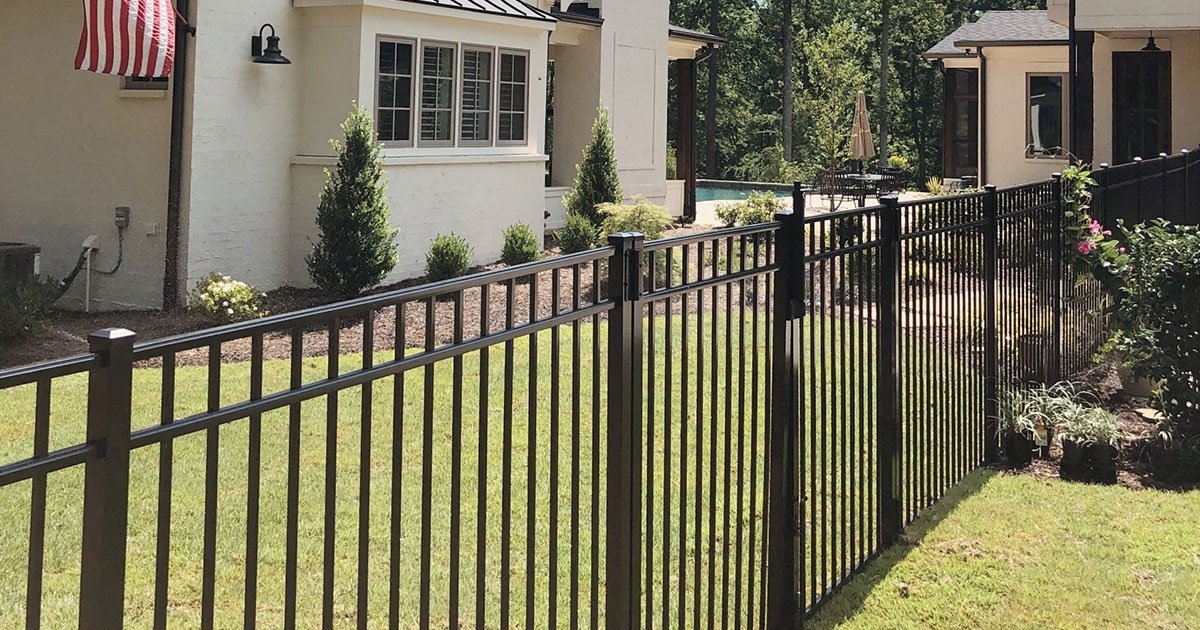All Categories
Featured

Picking the best type of fencing for your residential or commercial property is a considerable choice that can impact both the visual appeals and performance of your room. Whether you're seeking privacy, safety and security, or just an attractive function, there are numerous factors to think about when choosing the perfect fence. Below are some essential factors to consider to aid guide your decision-making process.
- Establish the Function of the Fence. The initial step in picking the right sort of fence is to clarify its objective. Different fencings offer different features, and comprehending your certain needs will assist limit your alternatives. Think about the following:
Privacy: If you're seeking personal privacy, a tall and strong fence such as timber or vinyl will protect against spying eyes from seeing into your lawn. Safety and security: For safety objectives, a strong, tall fencing constructed from aluminum or steel can discourage intruders and supply peace of mind. Visual Charm: An attractive fencing made from wrought iron, light weight aluminum, or picket-style wood can include beauty and visual attract your residential property. Pet Dog or Animal Containment: If you need to consist of pet dogs or animals, a strong fencing like chain web link or timber may be needed to prevent them from running away. 2. Think about the Product. When you've established the fence's key purpose, it's time to pick the product. Each sort of material includes its very own set of obstacles and advantages. Below are some usual materials to think about:
Wood: Timber fences are versatile and personalized, offering personal privacy and a timeless look. They're perfect for traditional homes or country residential properties however call for normal upkeep to protect against bug, bending, or rot invasion. Plastic: Plastic fences are low-maintenance, long lasting, and readily available in a range of designs. They won't fracture, warp, or discolor, making them a great choice for those who want a resilient, convenient fencing. Vinyl can be much more pricey upfront than timber. Aluminum: Aluminum fences offer a sleek, modern appearance and are long lasting, rust-resistant, and require minimal maintenance. They normally do not offer as much privacy as timber or plastic, as the slats are typically spaced apart. Chain Link: Chain link fencings are commonly utilized for security or to have pet dogs. They are cost effective and sturdy, yet they do not supply much privacy or visual charm unless you include slats or personal privacy displays. 3. Variable in the Climate and Maintenance Demands. Your area's environment can substantially impact the life-span and maintenance demands of your fencing. Materials like timber might need added treatment to avoid rot or mold and mildew development if you live in an area with high moisture or regular rain. On the other hand, vinyl and light weight aluminum fences are resistant to the elements and call for a lot less maintenance.
In addition, think about the amount of time and effort you agree to dedicate to fence maintenance. Timber fences require normal staining or paint to maintain their look, while vinyl and aluminum call for much much less upkeep.
- Assume Concerning Longevity and Life expectancy. Take into consideration just how long you want your fence to last. If you're seeking a fence that will last for years with little maintenance, vinyl and light weight aluminum are superb choices. While timber fencings can last 10-20 years with correct care, they might not withstand the examination of time along with other materials.
Also, consider your spending plan. Products like timber and chain link have a tendency to be even more cost effective upfront, while plastic and light weight aluminum have a tendency ahead with a higher first cost however offer lasting longevity.
- Match the Fencing to Your Residential Property Design. The type of fencing you choose should enhance the general feel and look of your residential or commercial property. A well-chosen fencing can boost your home's visual allure, while an improperly chosen fence can diminish it. As an example:
Conventional Residences: A timeless wood picket fence or a functioned iron fencing functions well with older, more traditional homes. Modern Homes: For a modern look, smooth materials like aluminum or plastic can enhance contemporary design. Rural or Ranch Residences: A wood or cord fencing may be perfect for rural residential or commercial properties or farms, where functionality is equally as important as appearances. 6. Examine Local Regulations and HOA Standards. Before making your decision, inspect your local zoning policies and any HOA (Homeowners Association) guidelines to make certain that your wanted fencing complies with height restrictions, material demands, and other neighborhood legislations. Some areas have particular guidelines regarding the look of fences, particularly in property communities.

Final thought. Selecting the ideal fence for your residential property calls for cautious consideration of your requirements, budget, and the style of your home. Whether you're focusing on privacy, safety and security, or visual appeal, there's a fencing product and layout that will fit your needs. By thinking about the factors described above, you can make an informed decision and choose a fence that will certainly enhance the performance and beauty of your property for years ahead.
Latest Posts
Experience the Style of Hardwood Flooring with Carpet Interiors Floor & Home
Published Apr 19, 25
1 min read
Exploring the Perks of WyHy Share Interest-bearing Account
Published Apr 19, 25
1 min read
Stress-Free Birthday Celebration Celebration Preparation at FunCity Resort
Published Apr 19, 25
1 min read
More
Latest Posts
Experience the Style of Hardwood Flooring with Carpet Interiors Floor & Home
Published Apr 19, 25
1 min read
Exploring the Perks of WyHy Share Interest-bearing Account
Published Apr 19, 25
1 min read
Stress-Free Birthday Celebration Celebration Preparation at FunCity Resort
Published Apr 19, 25
1 min read